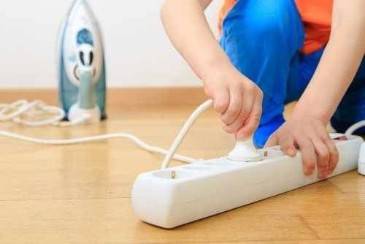In the realm of product liability claims in DeKalb County, Georgia, proving causation is often a complex and arduous task. Plaintiffs seeking compensation for injuries or damages caused by a defective product must not only demonstrate that the product was indeed defective but also establish a direct link between the defect and the harm suffered. This requirement places a significant burden on both plaintiffs and their legal representation. In this article, we will delve into the challenges involved in proving causation in DeKalb County product liability claims and discuss the necessary requirements to navigate this intricate legal terrain successfully.
Understanding Causation in Product Liability Claims
Causation, in the context of product liability claims, is the crucial element that establishes a direct connection between a defective product and the harm or injury sustained by the plaintiff. It essentially answers the question of whether the defect in the product was the proximate cause of the plaintiff’s injuries. To succeed in a product liability claim, plaintiffs must prove both actual causation and proximate causation.
Actual Causation
Actual causation, often referred to as “but-for” causation, is the simplest form of causation to understand. It requires demonstrating that the harm suffered by the plaintiff would not have occurred “but for” the defective product. In other words, the plaintiff must show that, had the product not been defective, they would not have suffered the injuries or damages in question.
Proving actual causation can be challenging in cases where there are multiple potential causes for the harm. The defense may argue that other factors contributed to the injuries, making it difficult to establish a direct link between the defect and the harm.
Proximate Causation
Proximate causation, on the other hand, is a more complex and often contentious aspect of causation in product liability claims. It focuses on whether the harm suffered by the plaintiff was a reasonably foreseeable consequence of the product’s defect. This means that even if a defective product played a role in the injury, plaintiffs must also show that the harm was within the scope of the risks associated with the defect.
Challenges in Proving Causation
Proving causation in product liability claims is fraught with challenges, particularly in DeKalb County, Georgia, where the legal standards can be demanding. Some of the primary challenges include:
- Expert Testimony: Establishing causation often requires expert testimony from professionals in relevant fields. Experts must provide persuasive evidence linking the product’s defect to the plaintiff’s injuries. Finding qualified experts and presenting their testimony effectively can be a significant hurdle.
- Product Alterations: In some cases, the defense may argue that the plaintiff or a third party altered the product in a way that contributed to the injury. Proving that the product’s defect remained a substantial factor in causing harm despite alterations can be challenging.
- Delayed Symptoms: Injuries related to defective products may not always manifest immediately. Proving that a product defect caused an injury that becomes apparent months or even years later can be challenging.
- Comparative Negligence: Georgia follows a modified comparative negligence system, which means that if the plaintiff is found partially responsible for their injuries, their compensation may be reduced or eliminated. Proving that the defendant’s product defect was the primary cause of the harm, despite potential plaintiff negligence, is crucial.
Requirements for Successfully Proving Causation
Overcoming these challenges and successfully proving causation in DeKalb County product liability claims requires a strategic approach and meticulous attention to detail. Here are some essential requirements to help plaintiffs build a strong case:
- Thorough Investigation: Conduct a comprehensive investigation to gather evidence that links the product’s defect to the plaintiff’s injuries. This may involve reviewing medical records, product documentation, accident reports, and expert analysis.
- Expert Witnesses: Engage qualified experts who can provide credible testimony regarding the product’s defect and its role in causing the harm. Expert witnesses can be instrumental in establishing both actual and proximate causation.
- Documentation: Maintain meticulous records of all relevant information, including medical bills, correspondence with the manufacturer, and any documentation related to the product’s defect.
- Legal Representation: Seek experienced legal representation from a law firm with a track record of success in handling product liability claims. Attorneys who specialize in this area of law can navigate the complexities of DeKalb County’s legal system effectively.
- Preservation of Evidence: Ensure that all potential evidence, including the defective product itself, is preserved. Failing to preserve evidence can weaken a plaintiff’s case.
- Communication: Maintain open and honest communication with your attorney. Discuss all aspects of your case, including any potential contributory negligence, to develop a winning strategy.
Proving causation in DeKalb County, Georgia product liability claims is undoubtedly challenging, but it’s not impossible. With a strategic approach, qualified experts, and a dedicated legal team, plaintiffs can successfully establish both actual and proximate causation, thereby increasing their chances of obtaining fair compensation for their injuries and damages.
If you or a loved one has suffered harm due to a defective product in DeKalb County, don’t hesitate to seek legal guidance. At Princenthal, May & Wilson, LLC, we have the experience to help you overcome the challenges of proving causation in product liability claims. Contact us today to schedule a consultation and take the first step toward securing the compensation you deserve.
